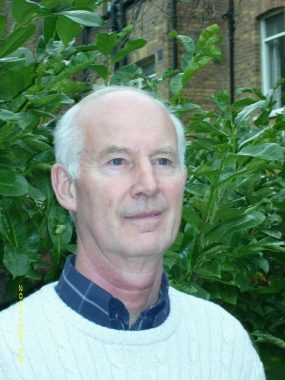
Richard Bourne is a member of the Round Table Board and member of its Editorial Advisory Team.
Q. You bring a lot of editorial experience to the Round Table; what do you see as some of the highlights of your journalistic career?
As an education journalist on The Guardian, in 1968-72, I campaigned to end selection and the 11 plus at that time so that Margaret Thatcher, as Education Minister, approved more comprehensive schools than before or since; as assistant editor at New Society, the weekly, I was responsible for publishing an article by a young PhD student, “Dear David Ennals” which led the then social services minister to commission the Black Report, on health inequality around the UK; and as Deputy Editor on the London Evening Standard I instigated campaigns against rip-offs of visitors to London, and for use of the city’s “wasted acres” — empty land which could be used for housing or recreation.
Q. How did your move from journalism to the Commonwealth happen?
It happened via work for Channel Four before it went on air — specifically a campaign for the new channel to devote time to development issues and what was then called the “Third World” — the Fourth Channel Development Education Group, for which I was one of two consultants. Subsequently I saw that the Commonwealth Institute, Kensington, an educational and cultural institution supported by all member governments and largely financed by the FCO, had a vacancy for a Deputy Director and I was appointed..
Q. The Commonwealth is such a diverse range of interests; where would you say are your specialist areas?
I think my main interests are in the politics of the Commonwealth as a whole, in human rights, and in development issues. I have visited over two thirds of member states and in the last five years have written books about Zimbabwe (2011 ) and Nigeria ( 2015 ) but would not regard myself as an exclusively African specialist
Q. You had been with the Commonwealth during a period that many now see as a golden era; what helped to make that happen?
I think the main drivers of attention, in the 1980s and 1990s, were the energy of Shridath Ramphal and Emeka Anyaoku, and the support they generated, which led to several initiatives and long-running campaigns ( eg on apartheid, debt write-off, democratisation, and climate change ).
Q. Do you think today’s Commonwealth is capable to re-achieving that former global glory?
This will be difficult, as there is so much more competing international activity, the power of governments is restricted in an era of social media and globalisation, and too many governments see the Commonwealth as something from which to take benefits, rather than a type of solidarity to which they can contribute. The new Secretary-General will need to build a core of cross-regional support among governments, and public education in all member states where people must be reminded that the Commonwealth exists, and they can help to make it useful to themselves and the world.
Q. Is the Commonwealth still relevant in 2016?
Yes.
Q. Can Commonwealth countries still be seen as one grouping pulling together?
No — it is very clear that there are many tensions, not just North v South. However this is true of all international institutions and it is the task of the Commonwealth Secretariat, and of well-disposed leaders, to build a highest common denominator for important policies, and to recognise that on some issues ( eg India’s reservations on the response to climate change, in Malta and Paris ) there will be a dissenting minority which should not stand in the way of a Commonwealth consensus.
Q. Why does the Round Table matter today?
Because elsewhere there is little considered reporting and commentary on the Commonwealth, and on many Commonwealth states.
Q. In an age of 140-character information, what’s the role for journals and informed analysis from the Round Table?
The 140 characters can direct people to longer, more nuanced analysis in articles that are the product of more reflection and are likely to have longer-term impact.
Related articles:
Richard Bourne interviews the Commonwealth Foundation’s Vijay Krishnarayan



